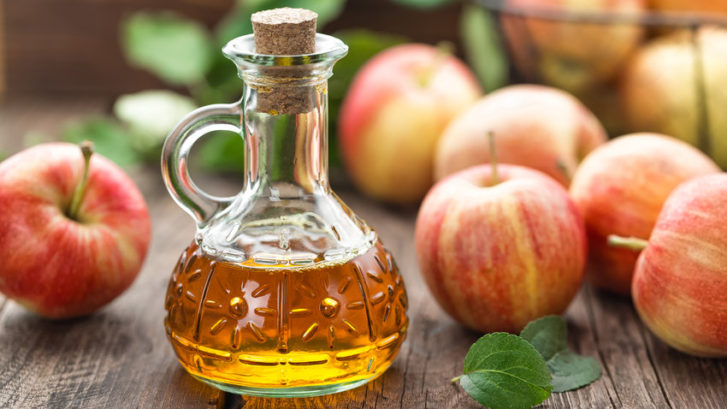Apple Cider Vinegar: Miracle or Mirage?
Your primary care concierge physicians at MD 2.0 in Jupiter, FL, often receive questions from our patients about the benefits or truth of one supposed miracle cure after another. Some of these so-called cures are hoaxes, some are hearsay, and some are possibly wishful thinking.
Some, however, have merit. Apple cider vinegar seems to be one of these. It has been touted as a cure for every ill from heartburn to cancer, though many of these claims remain unproven.
More recent studies, however, do seem to support some of the claims for its efficacy. Apple cider vinegar (ACV) is made from apples which have been crushed and the resulting juice allowed to ferment with the help of yeast. It contains trace amounts of potassium, amino acids and antioxidants, though whether enough of each to turn it into a “miracle” compound is still in some dispute. It also contains some B and C vitamins and small amounts of calcium, magnesium, iron, sodium, and phosphorus.
Unfiltered ACV contains a mysterious residue of compounds that settle on the bottom of the bottle. Known as “mother,” this concoction is believed to be the key to many of the health claims made for the substance. Again, this is a claim which has yet to be proven.
Some claims, however, are backed at least in part by scientific research.
In 2007, for example, a study published in Diabetes Care found that people with type 2 diabetes who consumed two tablespoons of ACV at bedtime were able to significantly lower their fasting blood sugar levels in the morning.
Can it help you lose weight? The jury’s still out on that one. One small 2009 study published in Bioscience, Biotechnology and Biochemistry, however, found that subjects classified as obese who consumed ACV daily for 12 weeks experienced significant decreases in body weight, waist circumference, abdominal fat, and harmful triglycerides.
Several studies performed on rats showed that ACV lowered LDL (“bad”) cholesterol and triglyceride levels, and reduced blood pressure (thus reducing the risk of heart disease), and some studies using human subjects confirmed the cholesterol results. Other studies showed cancer cells and tumors being attacked or even killed by ACV. But all those studies were conducted using either test tubes or rat subjects, not humans, and animal research often doesn’t translate into similar benefits with humans.
Even so, with all the proven benefits, along with many possible ones, why not add 1-2 teaspoons per day to your diet? What harm could it do?
It could interfere with any diabetes, heart, or other medications you may be taking. Undiluted, its acids could damage the digestive tract and tooth enamel. It could aggravate ulcers or kidney problems.
This is why you should always consult with your concierge doctor at MD 2.0, Jupiter, FL. We can help you sort out any such issues.

